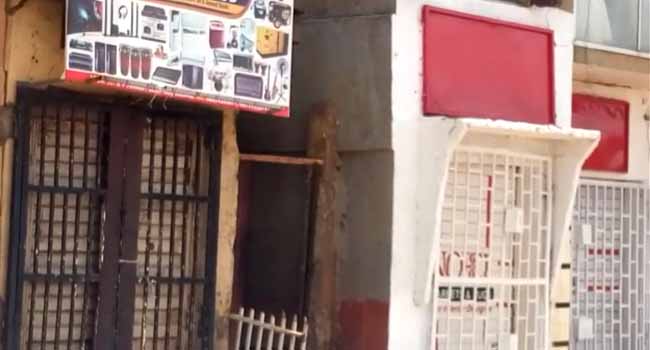Residents of Owerri, the Imo State capital, observed the May 30 Biafra Day sit-at-home order on Thursday, citing fear of violence as the primary reason for staying indoors despite repeated assurances of safety from security agencies.
A visit by PUO Reports correspondents to several areas within the city revealed deserted streets, shuttered shops, and a complete halt in economic and social activity. Residents who spoke to our correspondent said the fear of attacks by unknown gunmen and potential harassment by security personnel forced them to remain within the safety of their homes.
Ferdinand Nzukoka, a barbing salon owner, explained that the perceived threat from criminal elements masquerading as enforcers of the sit-at-home order has created an atmosphere of fear and uncertainty.
“Criminal elements hide under the guise of enforcing the sit-at-home order to rob people of their wares and money and sometimes inflict injuries on them,” Nzukoka said. “If you choose to go out for your daily activities, there is a chance you may not return home, or even if you do, it may not be without encountering one incident or the other.”
He recounted a personal experience where he was harassed by security operatives while heading out on a previous sit-at-home day.
“They accused me of being a member of IPOB, even though nothing incriminating was found on me. I was only released after enduring torture and pleading,” he said.
Odinakachi Nduka, who repairs mobile phones and sells accessories at Tetlow, echoed similar fears.
“It is too risky to step out on a sit-at-home day. You could be arrested by security agents and accused of attempting to breach public peace, or fall into the hands of unknown gunmen and be accused of disobeying the sit-at-home order,” he said. “So, it is safer to stay indoors and wait until the day passes.”
Olukoma Njoku, who operates a small eatery in the city, noted the financial impact of staying home but emphasized the importance of safety.
“No one enjoys staying home all day doing nothing. Time is money, and any lost time is lost income. But life is paramount and must be protected at any cost. As long as lives are at risk, we can sacrifice the day,” she said.
Mrs. Njoku, a housewife, called on the Federal Government to officially declare May 30 as a public holiday in memory of those killed in the aftermath of the January 15 1966 coup and during the Biafra-Nigeria civil war.
“If the Federal Government takes ownership of the day by declaring it a public holiday, it will no longer be in the hands of agitators to enforce. There is nothing wrong in observing the day if it is done officially,” she stated.
PUO Reports observed that commercial activities in Owerri were completely grounded. Markets, schools, and government offices were closed, while major roads were devoid of vehicular movement for the better part of the day.
